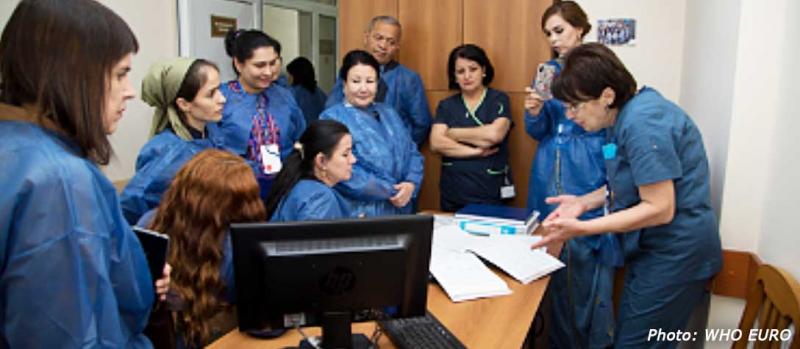
Building on pandemic influenza preparedness to respond to COVID-19 in Europe
August 3, 2020
European Region
Six years of pandemic influenza preparedness efforts in the WHO European region have established a basis for the ongoing response to COVID-19.
Since 2014, the WHO Regional Office for Europe has worked with select Member States to enhance pandemic influenza preparedness under the auspices of the Pandemic Influenza Preparedness Framework (PIP) through a range of activities designed to, for example, strengthen laboratory and surveillance capacities, build national outbreak investigation and response mechanisms, and develop national influenza pandemic preparedness plans (NIPPPs). This work has been done in concert with efforts to accelerate implementation of the International Health Regulations (2005) core capacities in the Region.
These new and improved capacities, systems and protocols have become particularly relevant with the emergence of COVID-19. For example, the NIPPPs provided the foundation for developing COVID-19 Country Preparedness and Response Plans (CPRPs), which were further tailored through guidance provided in WHO’s global Strategic Preparedness and Response Plan for COVID-19 (SPRP).
Armenia in action
In Armenia, several components of the COVID-19 CPRP were developed early in the pandemic, largely based on national guidelines and protocols that had been previously established with PIP PC support. In particular, four streams of pandemic influenza preparedness work provided a basis for Armenia’s response to COVID-19:
- Surveillance strengthening: An improved surveillance system for acute respiratory infections and influenza-like illness facilitated the identification of the first COVID-19 cases.
- Outbreak investigation and response training: Trained rapid response teams are heavily involved in contact tracing for COVID-19.
- Laboratory capacity building: The National Virology Reference Laboratory, which achieved WHO National Influenza Centre status in 2017 following PIP PC-supported capacity building efforts, was the first to perform COVID-19 testing in Armenia and continues to do the bulk of COVID-19 tests in the country.
- Critical care training: Intensive care doctors trained in caring for patients presenting with severe acute respiratory infections have provided the backbone of frontline management of COVID-19 cases.